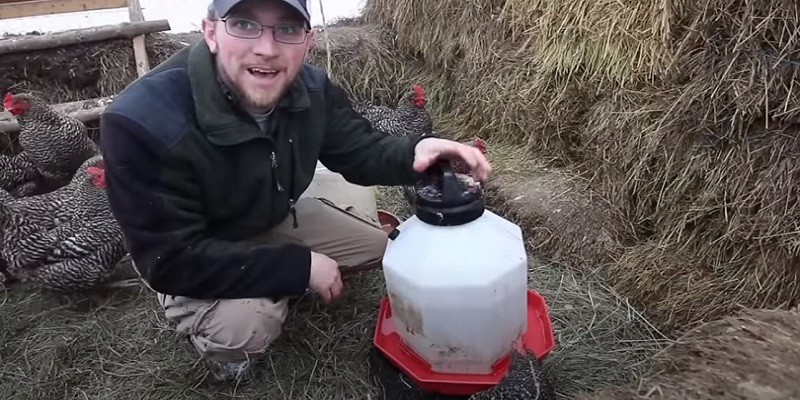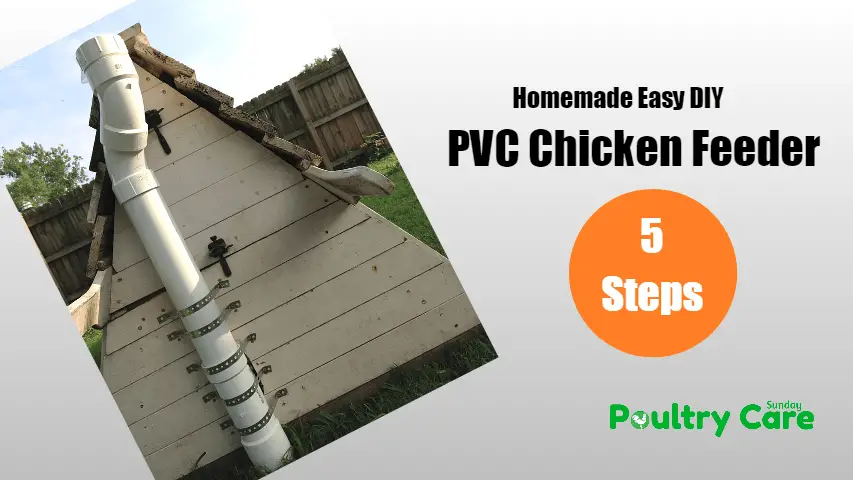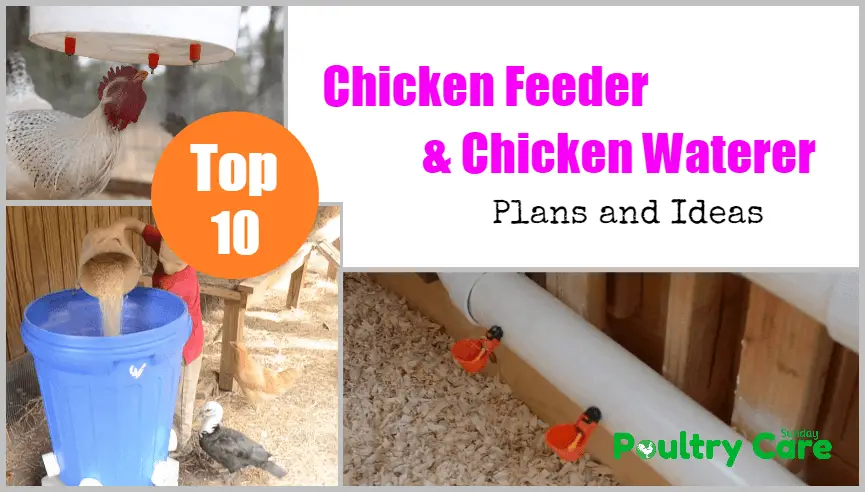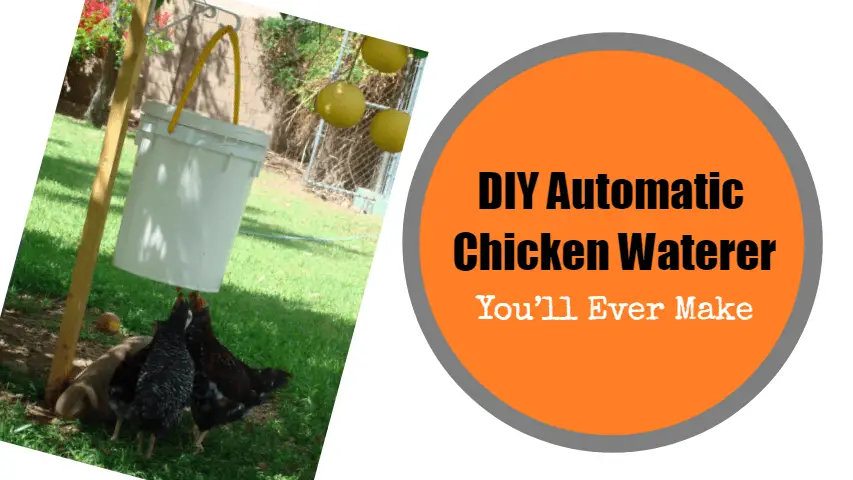Last Updated on December 3, 2023 by Pauline G. Carter
To keep chicken water from freezing, use a heated waterer or a heated base to prevent ice formation. As winter sets in, it’s crucial to ensure that your chickens have access to unfrozen water.
Freezing temperatures can cause water to solidify, leading to dehydration and health issues for the birds. By implementing a heated waterer or a heated base, you can effectively prevent the water from freezing, ensuring that your chickens have continuous access to clean, liquid water.
This simple solution will help maintain the health and well-being of your flock throughout the colder months, allowing them to stay hydrated and thrive despite the chilly conditions.
Winterizing Your Chicken Coop
To prevent chicken water from freezing in the coop, use insulated waterers or a heated base to keep the water at a safe temperature. You can also use a small DIY heater or specially designed heated waterers to help ensure a constant water supply for your chickens during winter.
The Importance Of Water In Winter
In the winter months, it’s crucial to ensure that your chickens have access to a consistent supply of water. Cold temperatures can cause the water to freeze, which can be detrimental to the health of your flock. Chickens need access to clean, unfrozen water to stay hydrated, regulate their body temperature, and maintain overall well-being. Without proper hydration, chickens can suffer from dehydration and reduced egg production. Therefore, it is essential to take proactive measures to prevent their water from freezing.
Insulating The Water Source
One effective way to keep chicken water from freezing is to insulate the water source. This can be achieved by using insulated waterers or placing the water containers inside insulated sleeves or jackets. Insulation helps retain the heat generated by the water and prevents it from freezing in low temperatures.
Using Heated Waterers
Another reliable option is to invest in heated waterers designed specifically for poultry. These devices are equipped with built-in heating elements that prevent the water from freezing, ensuring that your chickens have access to drinkable water even in the coldest conditions. Heated waterers are available in various sizes and styles, making it easy to find one that suits the needs of your flock.
Employing Diy Solutions
For budget-conscious chicken keepers, there are also several DIY solutions to prevent water from freezing. Wrapping the water containers with heat-reflective insulation materials or using heated bases under the waterers can help maintain a consistent temperature and prevent freezing. Additionally, placing the waterers in a sheltered area within the coop or using heat lamps can provide added warmth to the water source.
Taking proactive measures to prevent chicken water from freezing during the winter is essential for the health and well-being of your flock. Understanding the importance of water in winter and employing suitable methods such as insulation, heated waterers, and DIY solutions can ensure that your chickens have round-the-clock access to clean, unfrozen water, enabling them to thrive even in the coldest weather conditions. By implementing these strategies, you can effectively winterize your chicken coop and provide optimal care for your feathered friends.
Essential Factors In Water Freezing Prevention
When it comes to raising backyard chickens in colder climates, one of the essential factors to consider is preventing the water from freezing. Keeping your flock hydrated is crucial for their health and well-being, and ensuring a constant supply of unfrozen water is a priority during the winter months. In this blog post, we will explore the essential factors in water freezing prevention, including choosing the right watering system, insulation and heat sources for water storage, and minimizing moisture exposure in the coop.
Choosing The Right Watering System
When it comes to preventing chicken water from freezing, selecting the right watering system is crucial. Consider opting for insulated or heated waterers designed specifically to withstand freezing temperatures. This ensures that your chickens have access to liquid water even when the temperatures drop. Additionally, automatic waterers can help minimize the risk of freezing by continually replenishing the water and preventing stagnation.
Insulation And Heat Sources For Water Storage
Insulating the water storage area is essential for preventing freezing. Consider utilizing foam insulation or specialized water heater bases to protect the water container from the cold. Additionally, incorporating heat sources such as heated water bases or heated pet bowl inserts can help maintain a liquid state in the water, keeping it accessible to your chickens throughout the day.
Minimizing Moisture Exposure In The Coop
Moisture exposure in the coop can contribute to freezing water. Ensure that the coop is well-ventilated to minimize condensation, which can lead to frozen waterers. Additionally, position the waterers away from drafts to prevent rapid temperature changes that could lead to freezing. Using absorbent bedding materials can help manage moisture levels within the coop environment, contributing to overall water freezing prevention.
Diy Solutions For Preventing Chicken Water Freezing
Keeping your chicken’s water from freezing during the winter months is crucial for their health and well-being. Here are some effective DIY solutions to prevent chicken water from freezing.
Creating A Simple Water Heater
One of the simplest DIY solutions for preventing chicken water freezing is to create a basic water heater using common materials. By using a low-wattage submersible aquarium heater, you can keep the water temperature above freezing. Place the heater in a plastic container filled with water and ensure it’s secure and safe for your chickens to access.
Utilizing Solar Power For Water Heating
Another eco-friendly solution is to harness the power of the sun for heating chicken water. Building a solar water heating system involves using black plastic containers or pipes to absorb solar heat. This can then be circulated through the water container, keeping it above freezing temperatures. It’s a sustainable and cost-effective method for preventing freezing water in chicken coops.
Implementing Passive Heating Techniques For Water Storage
Passive heating techniques involve utilizing the natural warmth from the surroundings to keep chicken water from freezing. You can insulate the water containers using foam insulation or hay to retain heat. Additionally, placing the water containers in a well-ventilated but enclosed area can prevent direct exposure to cold winds, further helping to maintain water temperature above freezing.
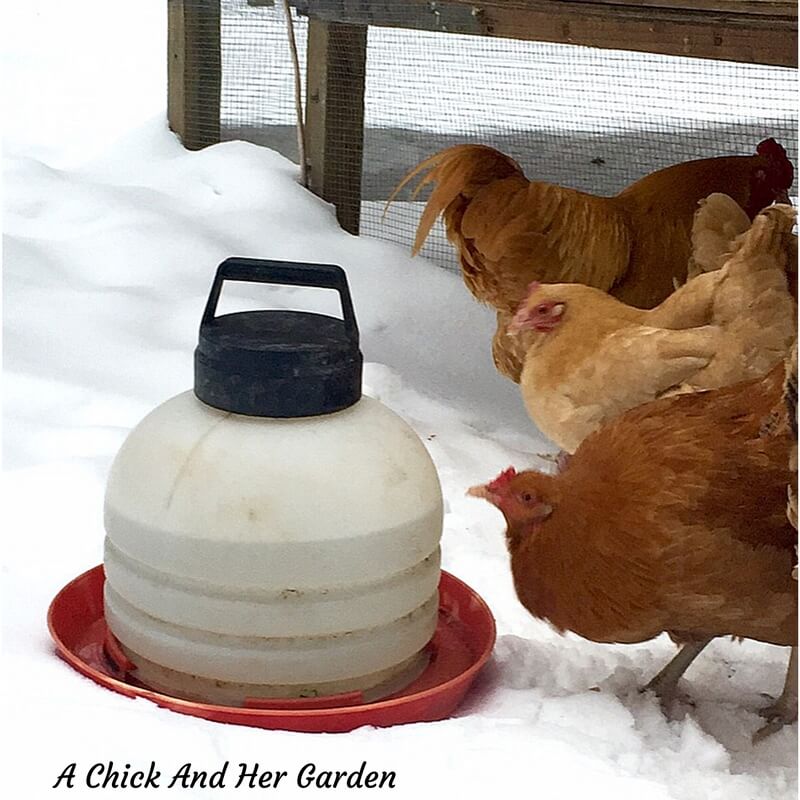
Credit: www.achickandhergarden.com
Best Practices For Maintaining Unfrozen Chicken Water
When caring for chickens during the cold winter months, ensuring that their water supply remains unfrozen is crucial for their health and well-being. Here are the best practices for maintaining unfrozen chicken water to keep your feathered friends hydrated and happy.
Regular Monitoring And Maintenance
Regularly monitoring the temperature and condition of the chicken water is essential. Check the water supply multiple times a day to ensure it remains unfrozen. Implement a maintenance routine to clean the water containers, as contaminants can contribute to freezing.
Ensuring Adequate Water Supply
Ensure that there is an adequate supply of water available to the chickens. In freezing temperatures, water consumption may increase, so it’s important to have sufficient water to prevent dehydration. Consider using larger water containers to accommodate the increased water needs.
Implementing Safe De-icing Methods
When utilizing de-icing methods, it’s crucial to prioritize safety. Avoid using chemical de-icers that could be harmful to the chickens. Instead, consider utilizing safe alternatives such as heated waterers or submergible heaters designed specifically for chicken water supplies. These options help maintain the water temperature without posing a risk to the chickens’ health.
Alternative Strategies For Access To Unfrozen Water
Keeping chicken water from freezing is crucial for the well-being of your flock, especially during the cold winter months. In addition to traditional methods such as heated water dishes and insulation, there are alternative strategies that can effectively provide access to unfrozen water for your chickens.
Utilizing Heated Water Dispensers
Heated water dispensers are a reliable solution for preventing water from freezing in cold temperatures. These devices are equipped with built-in heating elements that maintain the water’s temperature above freezing levels. Investing in a quality heated water dispenser can save you time and effort in constantly monitoring and de-icing traditional water containers.
When choosing a heated water dispenser, opt for models with insulation features to further protect the water from freezing. It is important to regularly check these dispensers to ensure they are functioning properly and to prevent any malfunctions that could leave your chickens without access to water.
Transitional Watering Methods For Extreme Conditions
In extreme cold conditions, transitional watering methods can provide a temporary solution to keep the water unfrozen. Swap out the waterer multiple times throughout the day with warm or hot water to prevent it from freezing completely. Another effective method is to use smaller water containers that can be easily replaced as the water begins to freeze. Additionally, positioning the water container in areas with direct sunlight can help delay the freezing process during the day.
Implementing Behavior-based Watering Techniques
Understanding the natural behaviors of your chickens can aid in implementing effective watering techniques. Encourage your chickens to consume water more frequently by adding certain treats or electrolytes to the water. By increasing their water consumption, the movement and agitation in the waterer can help prevent freezing. Regularly changing the location of the water source can also stimulate the chickens to seek out and consume water, reducing the chances of it freezing over.
Frequently Asked Questions Of How To Keep Chicken Water From Freezing?
How Can I Prevent Chicken Water From Freezing?
You can use a heated waterer or add a water heater base to your existing waterer to prevent freezing.
What Temperature Does Chicken Water Freeze?
Chicken water freezes at 32°F (0°C).
How Often Should I Check The Chicken Water For Freezing?
Check the water at least twice a day, especially during colder temperatures.
What Are Some Diy Solutions To Prevent Chicken Water From Freezing?
You can insulate the waterer, use a passive solar design, or add a floating ball to disrupt ice formation.
Can I Add Salt To The Chicken Water To Prevent Freezing?
No, adding salt to the chicken water is not recommended as it can harm the chickens.
What Are The Risks Of Chickens Not Having Access To Unfrozen Water?
Chickens can become dehydrated, which can lead to health issues and decreased egg production.
Conclusion
Preventing chicken water from freezing is crucial for their well-being in cold weather. By utilizing various methods such as heated waterers, insulating materials, and frequent monitoring, you can ensure your chickens have access to unfrozen water. Keeping their water thawed is essential for their health and comfort during the winter months.
About Author (Pauline G. Carter)

Pauline G. Carter is a well-known pet blogger who has written about the world of pets for several years. She is passionate about pets, from cats and dogs to birds, reptiles, and poultry. Her blog, which is updated regularly, is filled with articles and guides on pet care, nutrition, and training. She also shares her experiences and observations on pet ownership, making her blog relatable and informative for pet lovers. She is a true animal advocate and is dedicated to promoting responsible pet ownership. Let’s Go …
